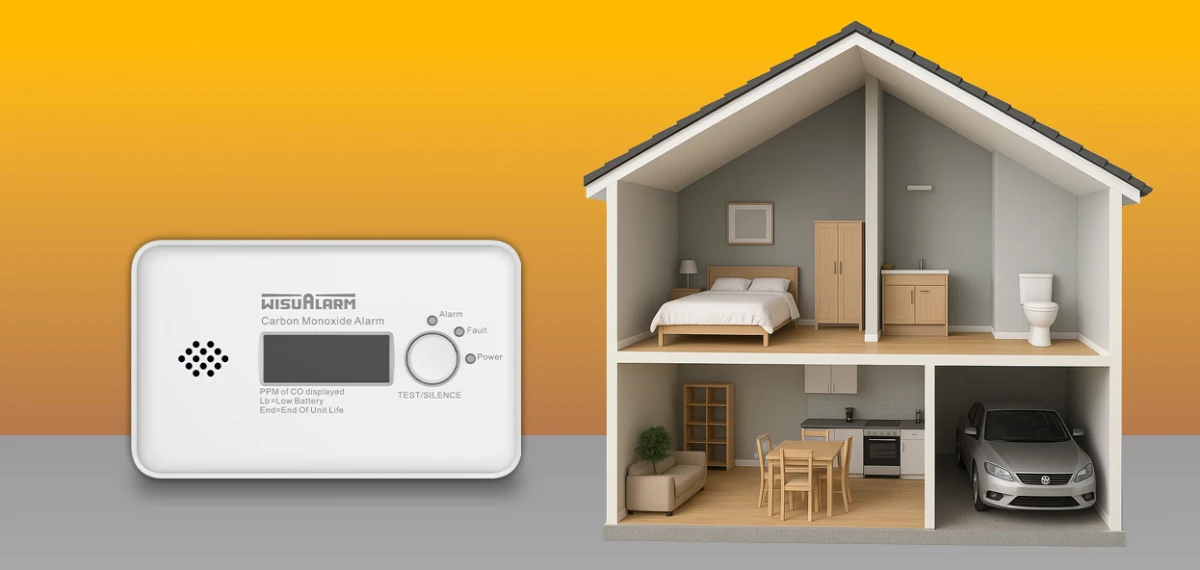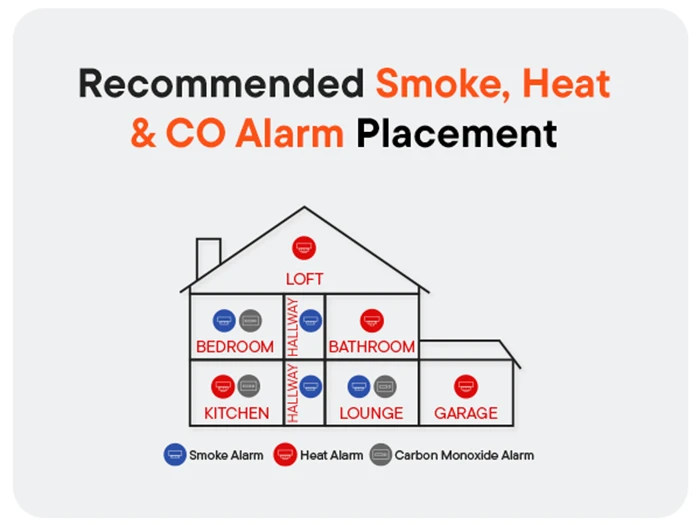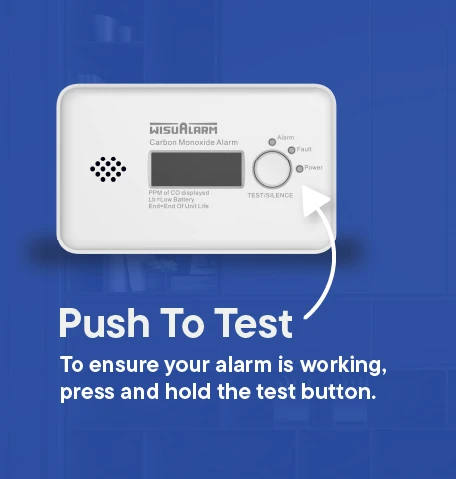
Need assistance?
Need Assistance? Call Us 0330 058 0630
29/10/2025 • by Alice P

Carbon monoxide is a gas you can’t see, smell or taste, but it can be deadly in high levels. It is recommended that all households have carbon monoxide alarms.
So how many carbon monoxide detectors do you actually need to stay safe?
Carbon monoxide is produced when fuel doesn’t burn properly. Common sources include gas boilers, fires, wood burners and even car engines if you have an attached garage.
It can build up quickly in enclosed spaces, and because it has no colour or smell, you might not realise it’s there until symptoms start. Common symptoms of CO poisoning include headaches, dizziness, nausea and confusion. That’s why a carbon monoxide detector is essential in every home.
Every home should have at least one carbon monoxide detector, but ideally more, depending on your layout.
A good rule of thumb:
One detector on every floor
One detector near each bedroom
One detector in every room with a fuel-burning appliance
So, if you have a two-storey house with a gas boiler in the kitchen and a log burner in the living room, you’ll want three detectors, one in the kitchen, one in the living room and one upstairs near the bedrooms.

Placement is just as important as quantity. Follow these tips:
Mount CO alarms at head height on a wall or shelf, roughly where you breathe.
Keep detectors 1 to 3 metres away from fuel-burning appliances.
Avoid placing them near windows, extractor fans or vents, as fresh air can stop the alarm detecting properly.
If bedrooms are upstairs, place one on the landing so the alarm can wake you if CO levels rise during the night.
If your home is on one level, make sure there’s at least one detector in the main living area and another near sleeping areas.
If you rent out a property, UK law requires a carbon monoxide alarm in any room with a fixed combustion appliance (except gas cookers). That includes gas boilers and solid fuel stoves.
Most domestic CO alarms are either:
10-year sealed battery models: easy to install and no battery changes needed.
Mains powered alarms with backup battery: often interlinked with other alarms, ideal for landlords or new builds.
Both are reliable, but sealed battery versions are easiest for homeowners to fit and forget.

Even though they might still beep when tested, most detectors need replacing every 7 to 10 years.
Check the back of your alarm for the expiry date. Always test your alarms once a month by pressing the test button.
You never know when a boiler fault or flue blockage might happen, so don’t wait for an annual service to find out. CO detectors give constant protection, 24/7.
If you’re not sure which one to buy, we stock a full range of carbon monoxide alarms from leading brands like WisuAlarm and FireAngel. At Fire Detection Shop, we recommend these brands as they’re all compliant with British Standards.